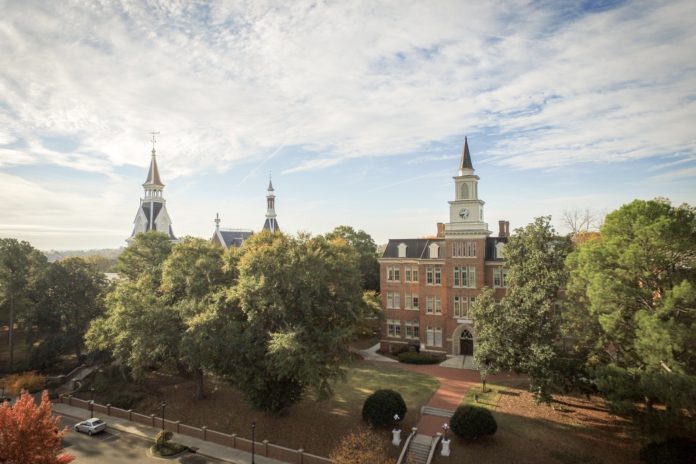Mercer’s Southern Studies Department held its second National Endowment for the Humanities Institute this summer for 24 selected teachers who traveled from New York, Washington, Hawaii, Kansas, Mississippi, Oklahoma, North Carolina and Alabama. The five-week institute, titled “Cotton Culture in the U.S. South, 1865-1965,” was funded by a $185,000 NEH grant, and held June 24 – July 27 on Mercer’s Macon campus.
The NEH grant is part of its Landmarks of American History and Culture: Summer Seminars and Institutes for School Teachers, which supports national faculty development programs in the humanities for school teachers.
“The teachers learned two important lessons,” said co-director Dr. David A. Davis, assistant professor of English. “First, cultural products, such as literature, art, and music, are immediately embedded in the economic, social and ideological structures of their time and place. In this institute, we attempted to expose those connections so that history teachers would understand the importance of, say, music, and that economics teachers would understand the role of literature. Second, the South’s commitment to growing cotton with exploitive, extractive and short-sighted practices created a unique and complicated set of social problems, and we are still living with the legacy of cotton culture.”
The teachers participated in various classes, workshops and discussions in addition to day trips to Jarrell Plantation, King Center, Atlanta History Center, Eatonton and Milledgeville, as well as an overnight trip to Savannah. Participants were given a stipend to assist with housing, food and travel expenses.
The institute was directed by Dr. Sarah Gardner, professor of history and director of Southern studies, Dr. Doug Thompson, associate professor of Southern Studies, and Dr. Davis. The institute also included a number of guest faculty who are experts in Southern history and culture. Mercer also received a grant to hold an institute in 2010.
Allen Smith, a 2003 Mercer graduate, attended the 2010 NEH Institute and came back to serve on staff this year. He is a teacher at Mary Persons High School in Monroe County, teaching honors American literature and serving as director of the school’s Georgia History Studies Program.
“What I’ve learned the most from the institute is simply how cotton culture is truly an interdisciplinary topic that is not just something taught in a history or literature classroom,” Smith said. “It’s something that transcends all of those individualized content areas. When we’re talking about something as dynamic as cotton and how it affects a culture, it’s every aspect of life and every aspect of discipline, and I think that’s something that from day to day was reemphasized by the directors and the presenters that came in.”
Participating teachers are encouraged to use the information they learned throughout the institute to bring back to their school and incorporate into their classes.
Antwayn Patrick, a world history, American government and economics teacher from S.V. Marshall High School in Mississippi, said, “Cotton is key to society, and we can teach that there’s more to cotton. There’s historical concepts, the racism, the slavery, the reason why people left the South; it’s all connected to cotton.”
“The institute is important because it gives teachers the content they need to understand and explain the gaps in the school curriculum between slavery and the civil rights movement,” Dr. Davis said. “The South’s story is rich and complex, and understanding its history and culture requires a nuanced comprehension of its past.”










